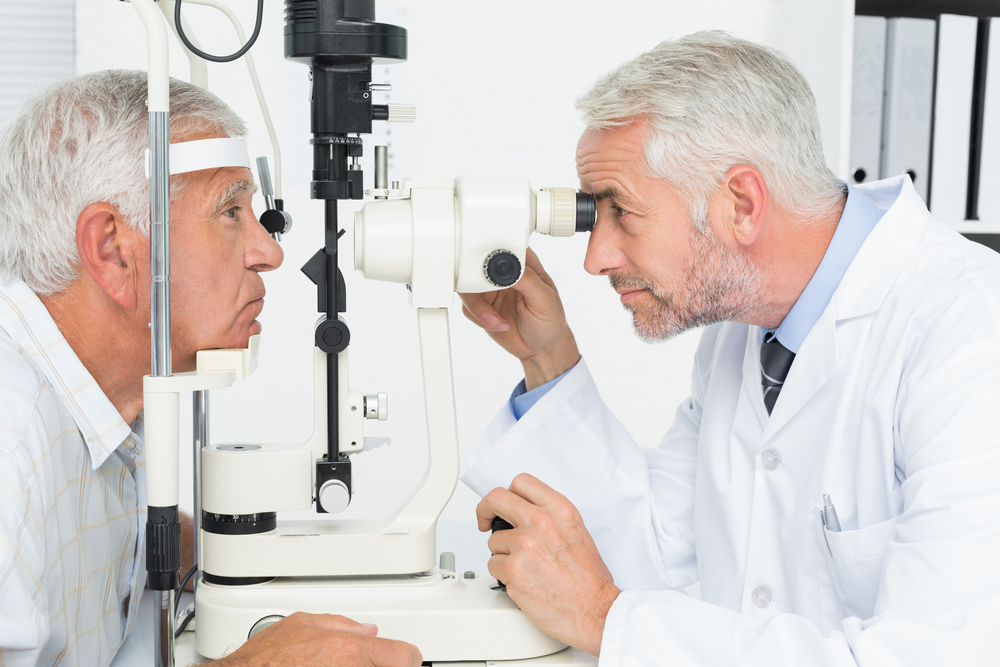Here's What an Eye Exam Could Tell You About Your Health
October 5, 2023
Routine eye exams are necessary to keep your eyes healthy, especially as you age. Your risk of developing age-related eye conditions like cataracts and macular degeneration increases as you age.
These eye conditions often cause significant vision loss. Most of these eye conditions are also undetectable in their early stages without a comprehensive eye exam.
Scheduling and attending eye exams regularly is the only way to detect and treat these conditions before your vision is irreversibly damaged.
But eye exams can do more than detect eye conditions. They can also detect the first sign of certain physical conditions affecting other parts of your body.
Although you may not realize it, your eyes can tell a lot about your overall health, especially for conditions in their early stages. This fact makes eye exams even more critical, especially for older patients at a higher risk for certain conditions.
Keep reading to learn what an eye exam may be able to tell you about your health!
The Importance of Seeing Eye Doctors and Primary Care Physicians
 You should see your primary care physician regularly. Doing so is especially important if you're older.
You should see your primary care physician regularly. Doing so is especially important if you're older.
Many older people struggle to see their doctors as regularly as they should. However, these same patients may visit their eye doctor regularly.
Seeing an eye doctor is necessary if you need an updated prescription for your glasses or contact lenses. Experiencing visual problems may also be more noticeable than physical discomfort.
If older patients are having issues with their vision, it may make them more likely to see their eye doctor. No matter how old you are, you should have a primary care physician and an eye doctor that you see regularly.
However, keeping up with regular appointments with all your healthcare providers can be challenging. Although the best way to diagnose health problems is by seeing your doctor or the appropriate specialist, an eye exam may help diagnose these in their early stages.
Eye exams can help identify and diagnose certain health conditions requiring treatment. Here are just a few conditions and diseases that your eye doctor may be able to spot from a comprehensive eye exam:
High Cholesterol
High cholesterol puts you at higher risk for heart disease. It also increases your risk of having a stroke.
Having blood work done can detect elevated cholesterol levels. But high cholesterol sometimes also causes a yellow or blue ring to form around the cornea.
Cholesterol deposits may also be detected in retinal blood vessels. If your eye doctor at Washington Eye Specialists sees any signs of high cholesterol, they can let you know so you can take appropriate next steps.
Diabetes
Diabetes can cause many issues that make it harder to keep your eyes healthy, particularly with your retina. The retina, the thin membrane that covers the back of your eye, can be damaged by consistently high blood sugar.
This or any potential damage can be seen during an eye exam in the form of overgrown, swelling, and leaking blood vessels. Overgrowth of blood vessels caused by diabetes is called diabetic retinopathy.
Diabetic retinopathy requires treatment to prevent total vision loss. It also may indicate that your blood sugar levels are too high, meaning you must manage your diabetes more effectively.
Skin Conditions
 Dry eyes, or dry eye syndrome, are often linked to certain skin conditions. Some of the more common conditions related to dry eye are eczema, lupus, and rosacea.
Dry eyes, or dry eye syndrome, are often linked to certain skin conditions. Some of the more common conditions related to dry eye are eczema, lupus, and rosacea.
Poor tear quality may indicate one of these conditions. Your eye doctor can often tell just by looking at your eyes whether or not you have symptoms of these skin conditions.
Cancer
Tumors from all over the body can affect the eye in ways that can be seen with a comprehensive eye exam. However, a brain tumor is one of the most serious and apparent tumors that can be seen during an eye exam.
Brain tumors can cause swelling of the optic nerve and other severe structural changes to the eye.
Lyme Disease
Lyme disease is a serious illness that often goes unnoticed. Treatment is more difficult the longer it goes undiagnosed, so early detection is vital.
Luckily, some of the earliest signs of the disease can be seen in the eye. These signs include floaters and inflammation of the optic nerve.
Rheumatoid Arthritis
An eye exam can often detect rheumatoid arthritis during an eye exam. Rheumatoid arthritis commonly causes severe inflammation of the sclera (which is the white part of the eye).
Like many age-related conditions, it's also associated with dry eyes and dry eye syndrome.
Aneurysms

An aneurysm is serious and potentially life-threatening. It's caused by a bubble of air forming in the wall of a blood vessel.
The bubble can rupture the vessel and cause serious complications. Aneurysms can be extremely difficult to detect and diagnose. However, an eye doctor may be able to see signs of one during an eye exam.
Save Your Vision and Your Life
Eye exams can save your vision by detecting the early signs of certain eye conditions. In some cases, they may even be able to save your life.
Make your eyes and health a priority by requesting a general eye care appointment at Washington Eye Specialists in Washington, DC. Isn't it time to know your vision is in the best hands?



